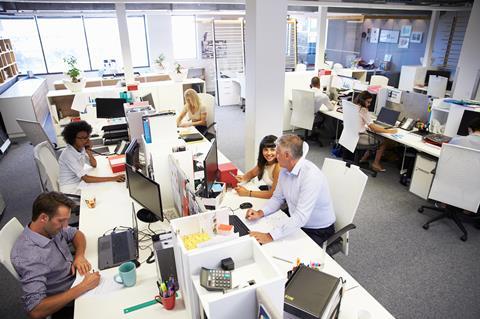We are in another lockdown and our release depends on the rollout of vaccines to those most at risk.do

The challenge is on for the government to ensure vaccines are dispensed as quickly as possible. Why not five million a week by cutting red tape so retired doctors and nurses can take the strain off health workers, using pharmacies to minimise travel as well as supermarket supply chains? As Churchill used to stamp papers: “Action THIS day.” No excuses!
Meanwhile, we suffer both a large increase in government borrowing that future generations will have to pay for and massive damage wreaked on our children’s education and the retail, food and beverage, leisure and travel sectors.
But let’s put the gloom behind us and look at the positives. At the start of the pandemic, it was argued that the office was dead, but the debate has now become more rational. We will continue to work more flexibly, which may reduce overall time in the office.
However, the benefits of the office to enable collaboration, instil corporate culture and serve as a place where the less experienced can learn from the more experienced are well-recognised.
As enforced WFH has continued, I have seen the impact on the mental health of those desperate to escape unsatisfactory home-working set-ups. It is far easier to build vital business relationships face to face than on Zoom.

I am not convinced by the accuracy of surveys that say employees want to work X days a week from home. I think the right time to make those assessments is post-pandemic when everyone has had the opportunity to reconnect in the workplace. People who spent time in the office last summer felt uplifted by the experience.
The workplace will continue to change as it always has. Densities will reduce. CBRE research shows if offices were occupied at the same density as in 2015, an extra 20m sq ft of space would be needed, so this may balance out a lower level of occupancy with more working remotely. While central London vacancy rates have risen 75% in the past 12 months, much of this space is tenant-controlled, poor-quality smaller units for which there will be even less demand.
Newer buildings offering excellent amenities (bike spaces, changing rooms and public realm) – alongside the most efficient air conditioning, technology and top environmental standards – will be in demand as employers want to provide places where staff want – rather than need – to be.
There are other positives. Brexit is done and the uncertainty hovering over us since June 2016 has gone. We must embrace the new opportunities this will create.
The Covid-induced recession has had a disproportionate impact on some business sectors. Other sectors such as life sciences, financial services, technology and online retail have prospered.
Household savings have risen by £113bn and debt has reduced by £20bn. This will create a spending boom later in 2021, which will help us out of the mire.
Gerald Kaye is chief executive of Helical





























No comments yet